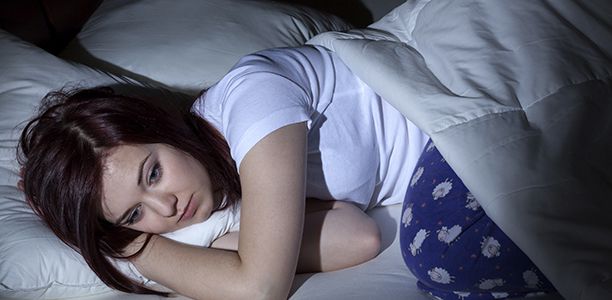Seven in every 10 Australian teenagers suffer from sleep deprivation, but virtually none see a doctor to treat the problem.
This worrying statistic has inspired specialists at Woolcock Institute of Medical Research in Sydney to launch the country’s first-ever inter-disciplinary Paediatric Sleep Clinic.
The centre, opening its doors this week, aims to tackle head-on the abundance of sleeping problems among babies, young children and adolescents.
“Sleep deprivation is incredibly common,” says Dr Chris Seton, a paediatric and adolescent sleep physician involved in the clinic. “It affects 70% of our teenagers yet only two per cent of them realise the problem as a medical issue and seek help from a doctor.”
“Without treatment, these kids are suffering from poor sleep and the many possible side effects, like learning problems, risk-taking behaviours, family disharmony, school absenteeism, poor self-esteem, depression and obesity.”
Children aged between 12 and 18 need nine hours sleep a night on average, but as Dr Seton explains, late bed times and electronic media stop many from getting the shut eye they need.
“Teens generally have very busy lives, staying up late to socialise, study or play sports, waking early for school and coming home tired,” says Dr Seton who has been treating children with sleep problems for over 20 years.
On top of that, FOMO – fear of missing out – drives these overtired kids to stay up late texting, chatting and gaming with mates on their phone, computer or tablet to stay connected.
It’s not just this frenzy of electronic activity that’s waking up a sleepy brain. Light emitted from these electronic screens, particularly short wavelength blue light, further delays sleep by suppressing the sleep hormone melatonin, he says.
Dr Seton, who established SleepShack, the first online sleep diagnostic and treatment program for adolescents, says treatment received early enough can change sleeping habits long term.
The clinic, to be run fortnightly from Woolcock’s Glebe headquarters, will be the first truly interdisciplinary sleep service for young Australians. With specialists in sleep, respiratory, allergies, and ear, nose and throat conditions, the centre will be well positioned to diagnose and treat all sleep issues, from SIDS, night terrors and toddler sleep problems through to insomnia, obstructive sleep apnea and restless legs syndrome.
It will house two fully-equipped sleep study suites where sleep patterns can be monitored overnight, boosting the number of Australian sleep studies each year from 4,800 to 5,280.
“This will significantly reduce the waiting time for diagnosis and most importantly get treatment to sleep-troubled young people earlier,” Dr Seton says.
Teen Sleep
- Teenagers need nine hours sleep a night on average. They should aim for at least eight hours a night on weeknights
- 70% of teens get inadequate sleep, but just 2% seek help for it from their doctor
- The main cause of teen sleep deprivation is excessive night time use of electronic media
- The three key sleep problems in adolescents are: inadequate sleep hours, delayed sleep phasing and psychological insomnia
- Sleep deprivation has been linked to mood disorders, learning problems, drug and alcohol use, family problems, school absenteeism, poor self-esteem and weight gain
- The new Woolcock Paediatric Sleep Service will diagnose and treat young people from its Sydney base. Those looking for support outside Sydney can visit Sleepshack at http://www.sleepshack.com.au
Sleepshack: Online Teen & Pre-teen Sleep Treatment Program
- Sleep deprived teenagers and their parents who may prefer online sleep management can visit SleepShack at www.sleepshack.com.au.
- Sleep problems assessed & treated via SleepShack include insomnia, late body clocks (ie night owls), insufficient sleep, as well as psychological & behavioural sleep problems.
- Using the SleepShack tools, Dr Seton and Clinical Psychologist Dr Amanda Gamble personally assess the child’s sleep pattern and then provide an individualised Sleep Rescheduling Program.
- This online program includes optimisation of sleep, correction of late body clocks, improvement of sleep habits, and tools from Dr Gamble on managing negative thoughts and emotions at night.
Sleep Better: Advice from the Sleep Health Foundation
- At night, try to stop using technology earlier, dim the lights earlier, and start to relax earlier
- To help relax before bed try having a warm bath, reading quietly or having a hot milky drink
- Going to bed at a set time on school nights can help
- On weekend mornings, try not to sleep in so long
- When you do get out of bed on weekends, try to get a bit more outdoor light, and try to get dressed and have breakfast earlier
- The body clock works best if there is a regular sleep routine. When it’s working well, you will feel sleepy at bed time. Try not to ignore this by staying up, as this is a window of opportunity for sleep
(Source: Woolcock Institute of Medical Research)










